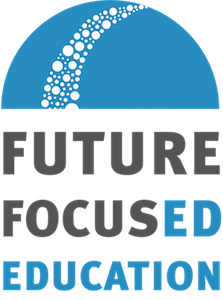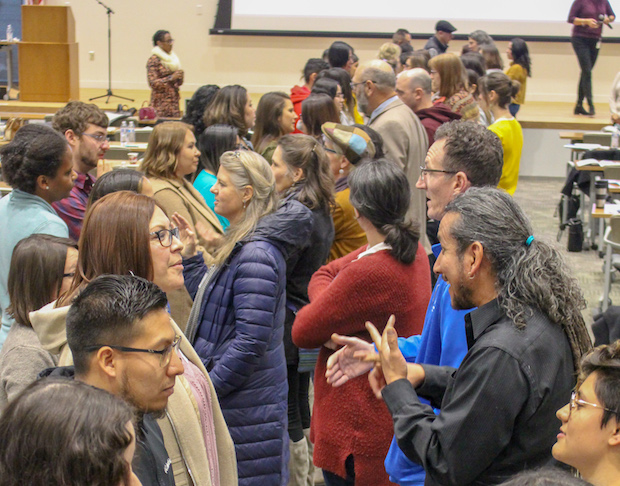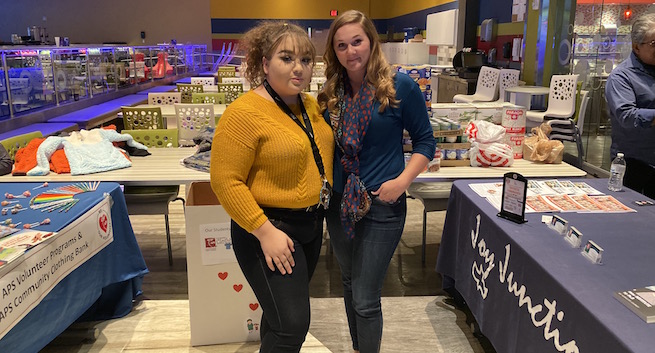How EdUprising Changed My Approach to Teaching: A Professor’s Perspective
By Helen Mary McFeely | Doctoral Candidate, University of New Mexico | January 23, 2020
I signed up for the 2020 EdUprising Conference with enthusiasm. I was excited to see where our unique state will go at the turn of a new decade.
As a newcomer to New Mexico, I was surprised to learn that there is a language clause in the state constitution. How educationally sound it is to value the cultural and linguistic wealth of our students! Consequently, I was thrilled when the Yazzie/Martinez ruling came down. Judge Singleton said the current education system is not upholding the constitution in regards to students who have different languages at home.
More dynamic still, Lynn Vasquez, Director of the New Mexico Public Education Department, told EdUprising attendees that our feedback that very day, at the conference, would impact the development of new education policy in light of the Yazzie/Martinez ruling. I think the educational heavens opened up upon her words. I’m sure there was a rainbow arching over the Berna Facio parking lot.
FEELING THUNDERSTRUCK
I gravitated to the workshop from Cynthia Ramirez, “Why We Need Social Emotional Standards Now”. This title really spoke to me. In addition to being a teacher, I also have six adopted children. As a parent, I have navigated the special needs recesses of IEPs and medical 504s. It is a tough world out there for our students, teachers, and parents who struggle with the system in place.
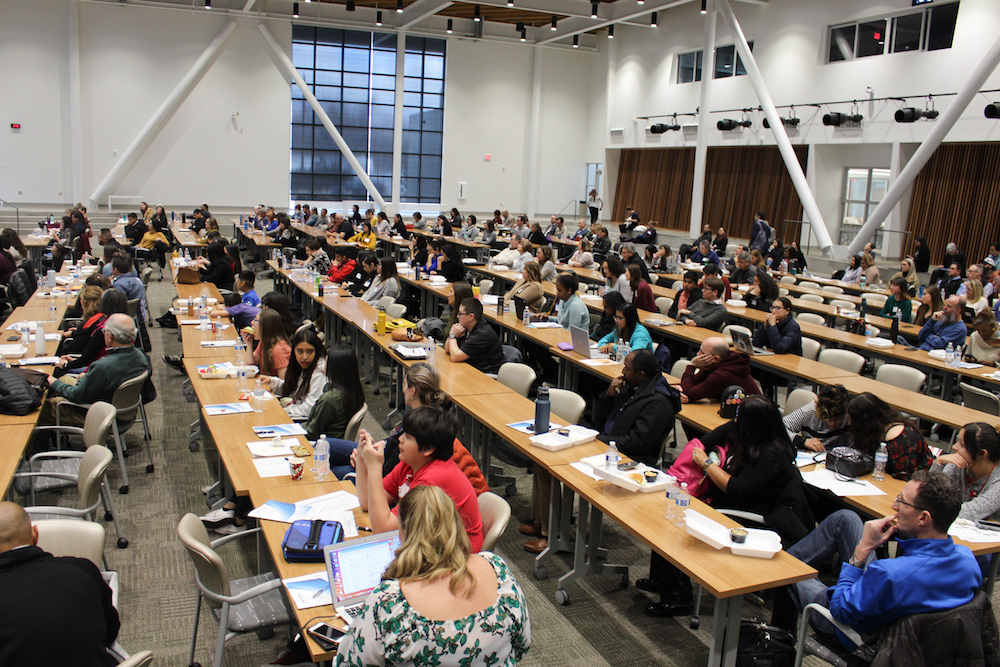
Over 250 attendees packed the keynote auditorium at Future Focused Education's inaugural conference, co-presented with NM's Public Education Department.
Ms. Ramirez led 100 participants through an exercise in being vulnerable and empathizing with a stranger. It was a moving exercise. However, the real “a-ha moment” for me as an educator was when Ms. Ramirez introduced the activity by saying, “We ask our students to do group work. But, outside of school, what are they doing? They’re in their phones. We haven’t taught them interpersonal skills, yet we expect them to do group work daily.”
I thought I heard thunder.
Here I am as a teacher, head buried in different ways to use group work in my university classroom, but I hadn’t pondered the ever-growing presence of screen time. It’s been 30 years since my high school days. I am used to direct, relational communication. How comfortable are students today with that kind of interaction? I don’t think our current students feel as comfortable openly talking about their internal world in face-to-face communication as they would through screens.
Ms. Ramirez explained to us that at Tech Leadership School, social emotional standards are intrinsic to the program. Relationships are foundational in supporting students. The teachers are comfortable checking in with students on a regular basis about their feelings, realizing that when students feel safe, they learn and connect more deeply. At the end of each week, the students use a rating scale from one to 10 to express how their week went. This check-in is used as an exit slip on Fridays.
What If We Checked In More?
Later, at the student panel, this theme came up again. While savoring my chicken sandwich, I watched the youth panel. Moderator Ali Moore asked the students to tell the audience their main takeaways. I stopped eating the potato chips and grabbed my pen. This is going to be important.
Alexandra DeAnda, a senior from Los Lunas High School, told us (with nods from the other student panelists) that teachers need to have more respectful, authentic relationships with students. I wrote in my notes: OK…definitely continue my reading on relationships in the classroom.
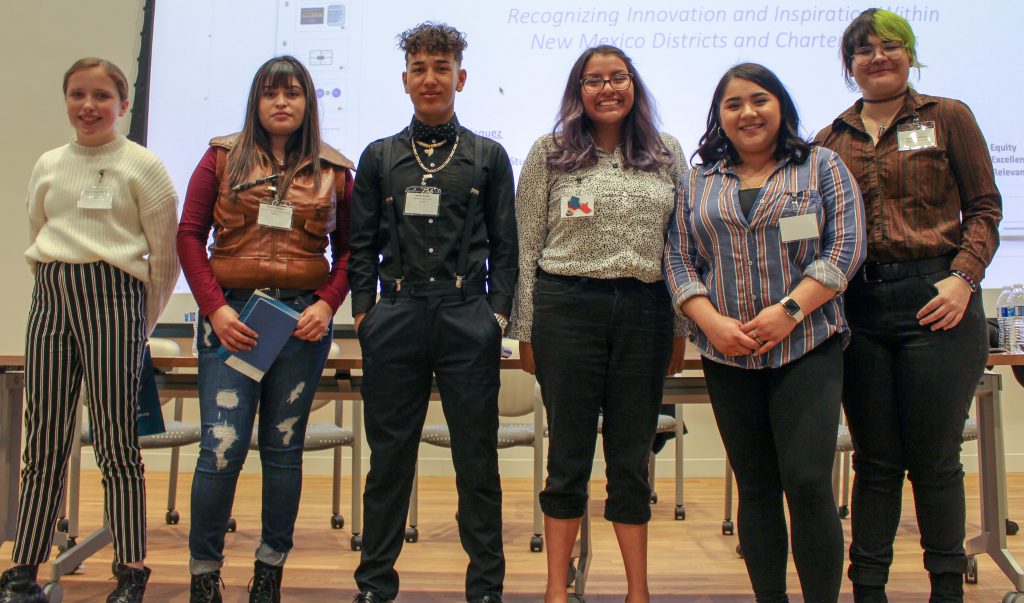
Students (l-r) Maeve Trager, Victoria Gonzalez, Mahdi Hossaini, Alanah Ambiz, Kelly Contreras, and Alexandra DeAnda at the Youth Voices Panel.
Next, Mahdi Hossaini, a senior from Highland High School, took the microphone. (I overheard in the hallway he was nominated the best dressed at the conference). As though he were thinking out loud to a room of 300 people, he said that making an emotional check-in part of the school day was an amazing concept. Mahdi encouraged me, with his genuine curiosity and sincerity, that the emotional check-in used by Cynthia Ramirez at Tech Leadership School is worth learning more about. Back to my notes…definitely follow up with Cynthia.
Integrating What I Found
The conference gave me these new thoughts to apply to my teaching situation. In the spring, I’ll be teaching seniors in the College of Education at UNM. My students will be putting the finishing touches on their Bachelor’s degrees while also student-teaching. My literacy curriculum has many hands-on practices that the college students can bring into their student teaching. Can I use an emotional check-in with college students? What will that look like? What interpersonal work can I do with college students that will trickle down into the K-12 classrooms?
It is exciting to have new tools to work with. I’ll check in again in a few weeks with an update about where these thoughts have taken me as an educator.
What did you take away from the conference? I would love to hear about your experiences and your takeaways to your classrooms.

